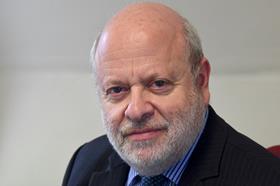Here is a first take on how a Trump presidency may affect lawyers’ work, including here in the UK.

I came to it through my moderation of a well-attended webinar last week for European lawyers on the impact of ESG (environmental, social and governance) concerns on lawyers’ practices. The principal focus was on the EU’s new Corporate Sustainability Due Diligence Directive (CSDDD - Directive (EU) 2024/1760), with further sessions on its impact on lawyers, on why lawyers should be concerned about ESG, and on the ethical implications that arise with ESG obligations on law firms and clients.
The earthquake that had occurred just a couple of days before was not mentioned: the decisive election of Donald Trump as US President, and the seemingly red sweep of Congress. This is an earthquake for various aspects of our life, and ESG is one of them.
As the New York Times reported, people working on the Trump transition have already prepared a slate of executive orders and presidential proclamations on climate and energy, including withdrawal from the Paris climate agreement, elimination of every office in every agency working to end the pollution that disproportionately affects poor communities, and shrinking the size of national monuments in the West to allow more drilling and mining on public lands.
The Securities and Exchange Commission passed a climate disclosure rule earlier this year. It became mired in legal challenges, many from Republican-led states, and was therefore suspended while the agency worked through the challenges. Rules like this are expected to disappear altogether.
Republican antagonism against ESG will doubtless grow. I wrote exactly two years ago about the action taken by a group of Republican senators who wrote to over 50 US law firms to warn them about their ESG practices, advising them and their clients to take care to preserve relevant documents in anticipation of competition investigations. They said in the letter :
‘The ESG movement attempts to weaponize corporations to reshape society in ways that Americans would never endorse at the ballot box. Of particular concern is the collusive effort to restrict the supply of coal, oil, and gas, which is driving up energy costs across the globe and empowering America’s adversaries abroad.’
There was accompanying action by other Republican politicians against ESG ratings and analytics providers, and against Blackrock, the huge asset management and investment firm, alleging that Blackrock was privileging its ‘climate agenda’ over its fiduciary duties.
The US is nevertheless a complicated place, and state and international ESG obligations will remain.
My webinar raised one of those international obligations, since, although US companies may not face any (or only diluted) ESG obligations at a federal level under a Trump presidency, the EU’s CSDDD will apply. It applies specifically to non-EU companies which have a net turnover of €450 million or more in the EU. The directive imposes a duty on companies caught within its scope to identify and address potential and actual adverse human rights and environmental impacts, not only in their own operations, but also in those of their subsidiaries and, where related to their chain(s) of activities, those of their business partners.
However, the way that EU regulation on US companies is going to play out in the new Trump era is not certain. It will doubtless blow up first in the tech field. Last month, candidate Trump vowed not to let the EU ‘take advantage of our companies,’ saying that Apple’s CEO had called him to complain about an EU antitrust fine and back-tax order. There may soon be more, as it is reported that Apple is about to attract the EU’s first fine for not complying with digital competition rules.
And then we come to Elon Musk, whose company X/Twitter may also be heading for a fine under the Digital Services Act – all while he is very close politically to Donald Trump and is being tipped for a government position. The Vice President elect was already reported some weeks ago as tying US support for NATO to the EU respecting American values and free speech, specifically referring to X/Twitter.
Will the EU stand firm on its own regulations, or will it bend to the will of the new US government? For the EU, the answer may well be folded into a complicated equation, which includes the growing possibility of a trade war with the US over tariffs.
As for lawyers, a big struggle is about blow up over the direction in which law firms and their clients will travel in relation to ESG. Multinational law firms in particular are going to face an interesting challenge, since their US offices may have to operate under different corporate values to their EU and UK offices.
This is just the beginning. Our lives will change in many ways.
Jonathan Goldsmith is Law Society Council member for EU & International, chair of the Law Society’s Policy & Regulatory Affairs Committee and a member of its board. All views expressed are personal and are not made in his capacity as a Law Society Council member, nor on behalf of the Law Society
This article is now closed for comment.































11 Readers' comments